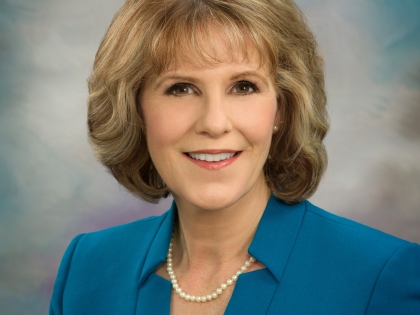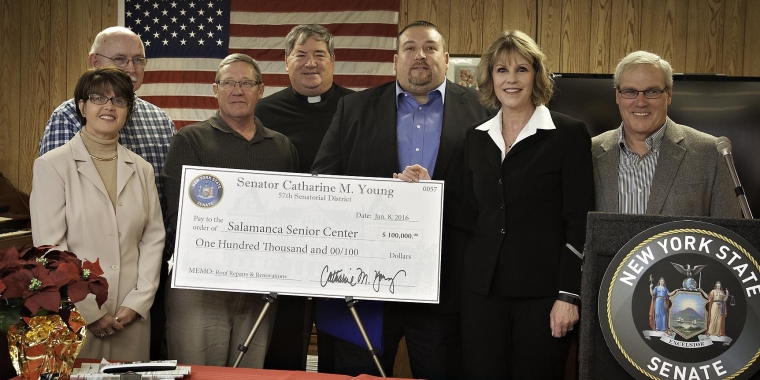
Young: “Rural School Districts Face Unique Challenges”
Catharine Young
May 15, 2015
-
ISSUE:
- Education
Senator submits comments to the State Education Department
ALBANY – During this year’s State Budget negotiations, Senator Catharine Young (R,C,I- Olean) and her colleagues fought hard to ensure that teachers, parents, and education advocates were given a voice in setting education policy for the state. As a direct result of their efforts, the State Education Department (SED) is now holding a public comment period as they begin to develop new standards for the state’s teacher and principal evaluation systems.
This week, Senator Young, Chair of the Legislative Commission on Rural Resources and a representative for a Senate District that includes over 40 rural schools, penned a letter to New York State’s Interim Education Commissioner Elizabeth Berlin, asking SED to take into consideration the unique burden facing rural schools when determining the evaluation process.
“Rural school districts, like the majority of school districts that make up my Senate District, face unique challenges as a result of their geographic isolation. The governor’s proposal to use outside independent evaluators failed to take into account the long distance and the limited number of administrators used by smaller rural schools, and would have resulted in a significant cost burden for local taxpayers,” said Senator Young.
“As they develop new teacher evaluation standards, SED must take these sizeable hurdles into account and provide flexibility so that our rural schools aren’t unfairly burdened,” Senator Young said.
Under the governor’s original proposal, school districts would have faced the unfunded mandate that they contract with independent observers, who would have been required to be from outside the school district, to perform teacher and administrator evaluations. Fortunately, because of the efforts of Senator Young and her colleagues, districts are now allowed to use district administrators and – for the first time ever – peer teachers to serve as observers and evaluators of their fellow colleagues.
However, language in the final bill states that these administrators and peer teachers “may be employed within the school district, but not the same school building as the teacher being evaluated.”
Since smaller rural school districts often have lower enrollment numbers than their larger urban counterparts, Senator Young is urging SED to use a broader definition of “school building” to ensure that teachers have the opportunity to be fairly evaluated without imposing significant hardship on the district.
“A broader definition of ‘school building’ will still allow our teachers and administrators to receive a fair and quality review, without the devastating cost impact of contracting an outside evaluator. Administrators from one level, may not be qualified to evaluate teachers at a different level, and some of my schools only operate out of one building. By expanding the definition, SED is upholding the original intent of the law, without negatively impacting the new standards,” she said.
“Our children need to receive first-class, high-quality learning opportunities that position them to be leaders in the world. Our schools have high graduation rates and our teachers work hard in the classrooms for our kids. Certainly we need higher education standards, but over-testing of students and imposing costly mandates on our districts does not help anyone,” Senator Young said.
The public comment period for the new teacher evaluation standards is now open. Those wishing to take part can do so by emailing their comments to the State Education Department at eval2015@nysed.gov.
A copy of the letter sent by Senator Young to Interim Commissioner Berlin can be found attached.
Share this Article or Press Release
Newsroom
Go to Newsroom
PSAP Grant Funding Will Help Keep Communities Safe
December 30, 2015
Online Learning Advisory Council Issues Final Report
December 21, 2015
